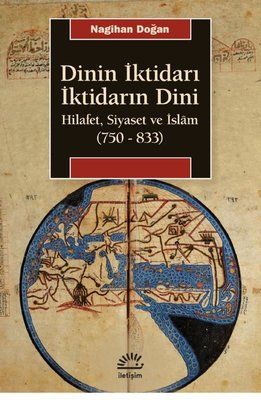
Religious Power The Religion of Power - Caliphate Politics and Islam
(0) Comment - 0 Point
Category
Author
Stock
100 Piece
Stock code
PX0000008093
stock status
in stock
Publishers
Price
17,10 USD + VAT
*starting from 2,56 USD!
%20 discount
17,10 USD
13,68 USD
Religious Power Religion of Power - Caliphate Politics and Islam Book Description The fact that religion and state are twin brothers is neither a Qur'anic description nor an explanation of the existing reality. (...) The caliphate, which is shown as the ideal state form that derives its validity and sanctity from basic Islamic sources, is actually nothing more than a human and historical institution. Neither the main Islamic sources mention the caliphate as the guarantor of the divine order on earth, nor are religion and politics as intertwined as they are presented in classical Islamic literature. It is obvious that politics is an area left to the ijtihad of Muslims. In this respect, the relationship between religion and politics or religion and power in Islamic societies is the subject of not only theology but also, and even more so, history. The struggle and interaction between Islam as a religion and the effort of the ulema, who are its representatives, to direct politics, and the effort of political actors to shape religion according to their own interests and interests... Nagihan Doğan, in his book The Power of Religion, The Religion of Power, explains how the relationship between religion and politics in the history of Islam is determined by this interaction. reveals it with a historical analysis. The analysis focuses on the religious-political divisions dating back to the period of the four caliphs, the Sunni-Shiite schism, and the Abbasids' strategy of basing the Umayyad past on the Sunni tradition within this schism, and then focuses on the Abbasids' development of the Sunni caliphate doctrine as a source that legitimizes their own rule. On this occasion, it is also examined how well they comply with the Islamic governance criteria set by the Abbasid government. The struggle between the authorities and the ulema and the experience of oppression faced by religious scholars constitute a chapter in the book worth its own attention. A source book that will accompany those who are interested in the history of the state and power in general, as well as the history of Islam. (From the Promotional Bulletin)
| Publisher | : | Contact Publishing |
| Number of pages | : | 336 |
| Publication Year | : | 2021 |
| ISBN | : | 9789750531774 |
| The heart | : | Turkish |
Be the first to review this product!
İyi beğendim
pratik cocuk etkinlikleri | 18/09/2025
İyi güzel
pratik cocuk etkinlikleri | 18/09/2025
Sitenizi çok beğeniyorum. Başarılar
S... A... | 29/07/2025
Ömer Aksoy | 25/07/2025
Kovareke giranbiha
O... K... | 30/05/2025
Kürtler için yapılmış güzel şeylerden bir tanesi
M... A... | 16/04/2025
siparişler hızlıca ulaşıyor, kategori çok. beğendim.
A... U... | 05/04/2025
Sizlerden gayet memnunum emeğinize sağlık
M... A... | 12/03/2025
Harikaydı
Serdar KÖMÜRCÜ | 22/01/2025
Gayet pratik ve hoş
Muzaffer Bora | 12/01/2025


